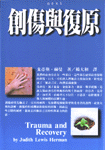 |  |  |
(1)不要讓別人影響你──假如每個人都嘲笑你的想法,這就是可能成功的指標!
(2)普通常識並不是那麼普通──大眾社會相信的常常是錯的,不要盲目聽信別人的話
(3)將世界納入你的眼界──保持開放的心,做個世界公民!
(4)研讀哲學,學會思考──訓練自己去檢驗每一種概念、每一個事實
(5)反眾道而行──檢視事實和機會,不隨烏合之眾心理起舞
(6)幸運女神只眷顧持續努力的人──用功讀書,學得越多你才知道你懂得越少
上面是羅傑斯給他女兒的12個箴言的其中6個,這6個箴言跟電影「刺客聯盟Wanted」都讓我聯想到之前翻譯的一份文件。
最近中國製的電視流入北韓,問題是這些電視能看到南韓的節目。
以前北韓的電視只能開和關。收音機的可變電容器也被焊上,頻率被固定。但是現在中國製的電視可以選台,也能看到南韓的節目。當然北韓不允許,可是我想大家都偷偷地在看吧。所以北韓國民應該也接收了很多來自外國的資訊。
看了節目,北韓國民就會知道,和南韓比,自己的國家有多糟。這樣金正日的生命會有危險。如果和南韓建構緊密的關係,三十八度線撤哨,雙方可以自由往來,資訊會更開放。
國民的激動情緒到達頂點時,金正日會被國民親手殺了。
這樣想來,對金正日來說,加強和南韓交流,是個人風險太高的國家政策。為了自己生命安全,他一定會避免用這一招。(《我的發想術》頁130)
「凡是完全超出經驗範圍的事,都教人很難接受。」王鼎鈞在回憶錄《關山奪路》中這樣說著。
說起來,英文中的「洗腦(brainwashing)」這個單字,也是在南北韓戰爭中,為了描述被俘的美軍所遭遇到的不人道狀況而發明的。
常常有人會說不要被什麼什麼「洗腦」了,是你真的被什麼什麼「洗腦」了?還是說這話的人在對你「洗腦」?動不動就叫人拒看什麼,是不是跟北韓政府把電視跟收音機頻道固定的作為類似?
使人能夠奴役他人的方法是相當一致的。來自世界各角落的人質、政治犯和集中營倖存者的描述,也有不可思議的雷同性。國際特赦組織(Amnesty International,AI)從不同文化中廣泛擷取政治犯的現身說法,在1973年出版了《脅迫憲章Chart of Coercion》,內容詳細敘述了那些奴役他人的方法。
(註:Amnesty International, "Report on Torture", New York: Farrar, Straus & Giroux, 1973. This report cites in particular the work of Alfred Biderman, who studied the effects of brainwashing in American prisoners of war. 出自《創傷與復原Trauma and Recovery: The Aftermath of Violence--from Domestic Abuse to Political Terror》英文版頁260)
在風化業、色情行業和家庭中,這些相同的技術也被使用來壓制女性。在組織性的犯罪活動方面,鴇母和A片製作人,有時候會用脅迫的方式來教導新人。使用系統化的脅迫方式使女性淪入風塵,而稱之為「調教seasoning」。即使在家中,毆打者不屬於任何較大的組織,也沒有被人正式教導過這些技術,但是他卻似乎不斷地重塑這些技術。心理學家蕾諾‧沃克(Lenore Walker)在她有關被毆女性的研究中觀察到:虐待者的脅迫技術「儘管因人而異,卻依然非常類似。」(《創傷與復原》頁103)
或許,你會有興趣藉由《脅迫憲章》來審視某些人的說詞。雖然我們不免要受周遭的人、事、物所影響,但我們總希望能擁有最大程度的自我意志,保有自我,透過這份資料,至少可以讓我們有更強的抵抗力不任人擺佈而不自知。沒錯,我不得不老實說,如果有人長久陷於《脅迫憲章》中所描述的情境無法脫逃,很難不被影響。情境影響力的巨大超乎一般人想像,為此曾任美國心理學會會長的知名心理學家菲利普.金巴多(Philip Zimbardo)還特別寫了《路西法效應The Lucifer Effect: Understanding How Good People Turn Evil》一書。
由於找不到其他版本的中文翻譯,只好習用我多年前的譯文。如有翻譯錯誤的地方,煩請告知,好讓我做更正通知。雖然現今整齣戲碼照搬不易,但其中巧妙仍有人善加利用,不限定在宗教或政治上,所以我全指稱為團體(當然一個人也能造成脅迫,如虐妻、虐夫、虐待兒童、公司上司)。請注意,整天在某個環境工作,也會造成某種程度的孤立效果。
----------------------------------------------------------------
Biderman's Chart of Coercion
脅迫憲章
----------------------------------------------------------------
"Most people who brainwash...use methods similar to those of prison guards who recognize that physical control is never easily accomplished without the cooperation of the prisoner. The most effective way to gain that cooperation is through subversive manipulation of the mind and feelings of the victim, who then becomes a psychological, as well as a physical, prisoner."
大部分洗腦的手法跟監獄警衛的手段相似,他們知道除非獲得囚犯的合作,要控制囚犯的身體是困難的。獲得合作最有效的方法莫過於破壞性的操控受害者的心智及情感,使他同時也成為心理上的囚犯。
from an Amnesty International publication, "Report on Torture", which depicts the brainwashing of prisoners of war.
來自國際特赦組織的《拷問報告》描述了戰爭時俘虜所遭遇到的洗腦手法。
----------------------------------------------------------------
Isolation
孤立
* Deprives individual of social support, effectively rendering him unable to resist
使個人脫離社會支持網路,讓他不易抵抗。
* Makes individual dependent upon interrogator
讓個體依賴拷問者。
* Develops an intense concern with self.
發展強烈的自我關注。
Once a person is away from longstanding emotional support and thus reality checks, it is fairly easy to set a stage for brainwashing. Spiritually abusive groups work to isolate individuals from friends and family, whether directly, by requiring the individuals to forsake friends and family for the sake of the "Kingdom" (group membership), or indirectly, by preaching the necessity to demonstrate one's love for God by "hating" one's father, mother, family, friends.
一個人一旦遠離長期的情感支持並且脫離現實感,就容易被洗腦了。殘害心靈的團體直接地要求成員放棄朋友和家人來換取該團體的認同,或者間接地鼓吹成員藉由表現憎恨自己的父母、家人及朋友,才能顯現對神的忠誠,來達到他們孤立個人的目的。
Abusive groups are not outward-looking, but inward-looking, insisting that members find all comfort and support and a replacement family within the group. Cut off from friends, relatives, previous relationships, abusive groups surround the recruits and hammer rigid ideologies into their consciousnesses, saturating their senses with specific doctrines and requirements of the group.
此類團體具封閉性質,堅持成員能在內獲得所有滿足、支持和家的感覺。將加入者的親友、人際關係隔離,灌輸僵硬的意識型態,讓加入者滿腦子只有團體的教條和要求。
Isolated from everyone but those within the group, recruits become dependent upon group members and leaders and find it difficult if not impossible to offer resistance to group teachings. They become self-interested and hyper-vigilant, very fearful should they incur the disapproval of the group, which now offers the only support available to them which has group approval.
由於與其他人隔離,加入者變得依賴團體成員和領導者,而越來越難抗拒團體教義。他們變得自私和高度警覺,害怕現在僅有的認同在此團體中失去。
Warning signs
警訊:
The seed of extremism exists wherever a group demands all the free time of a member, insisting he be in church every time the doors are open and calling him to account if he isn't, is critical or disapproving of involvements with friends and family outside the group, encourages secrecy by asking that members not share what they have seen or heard in meetings or about church affairs with outsiders, is openly, publicly, and repeatedly critical of other churches or groups (especially if the group claims to be the only one which speaks for God), is critical when members attend conferences, workshops or services at other churches, checks up on members in any way, i.e., to determine that the reason they gave for missing a meeting was valid, or makes attendance at all church functions mandatory for participating in church ministry or enjoying other benefits of church fellowship.
當一個團體要求成員付出所有空閒時間,堅持他要每次聚會出現,如不能出席需解釋原因;批評或不贊成成員與團體外的親友互動,鼓勵保密,不許把聚會內容透露;公開批評其他團體(特別是藉此強調其唯一的正統性);對參加其他團體的會議、工作坊或服務責難,並對成員進行調查,以確定缺席理由真假,或者強制參加團體所有集會才能成為幹部或者獲得團體情誼;這樣的團體存在偏激性質。
Once a member stops interacting openly with others, the group's influence is all that matters. He is bombarded with group values and information and there is no one outside the group with whom to share thoughts or who will offer reinforcement or affirmation if the member disagrees with or doubts the values of the group. The process of isolation and the self-doubt it creates allow the group and its leaders to gain power over the members. Leaders may criticize major and minor flaws of members, sometimes publically, or remind them of present or past sins. They may call members names, insult them or ignore them, or practice a combination of ignoring members at some times and receiving them warmly at others, thus maintaining a position of power (i.e., the leaders call the shots.)
一旦成員不再公開地與他人互動,該團體就有了最大的影響力。團體的價值觀及資訊持續轟炸,而不虞成員不同意或懷疑,因為沒有團體外的人可以分享或堅定他的想法。孤立的過程和缺乏自信,使團體及其領導者得以掌控成員。領導者可能會對成員的大小缺點責難,有時甚至當眾如此,或者提醒他們現在或過去的罪惡。他們可能叫喊成員,予以侮辱或忽視,或者一會兒不理不睬,一會兒熱心對待,好藉此來彰顯現在是誰在當家作主。
The sense of humiliation makes members feel they deserve the poor treatment they are receiving and may cause them to allow themselves to be subjected to any and all indignities out of gratefulness that one as unworthy as they feel is allowed to participate in the group at all. When leaders treat the member well occasionally, they accept any and all crumbs gratefully.
羞恥感讓成員覺得他們活該如此,並覺得沒用的自己能加入這團體是值得感激的。當領導者偶爾略施小惠,他們便感激涕零。
Eventually, awareness of how dependent they are on the group and gratitude for the smallest attention contributes to an increasing sense of shame and degradation on the part of the members, who begin to abuse themselves with "litanies of self-blame," i.e., "No matter what they do to me, I deserve it, as sinful and wretched as I am. I deserve no better. I have no rights but to go to hell. I should be grateful for everything I receive, even punishment."
最後,對團體依賴的體認和微小注意的感激,導致羞恥感的增加和團體內地位的降低,成員開始念「我活該咒」自虐,「不論他們如何對我,像我這樣有罪及惡劣的人,我活該。我不值得人家對我更好。我只夠格下地獄。不管我受到怎樣對待,即使是被懲罰,都要心存感激。」
「脅迫憲章Chart of Coercion(中)」
相關文章:
危險家暴的30項徵兆
你被洗腦了嗎?—脅迫憲章Chart of Coercion(下)
服從權威(Obedience to Authority)——邪惡的平凡性(banality of evil)
為什麼不要跟人爭論政治、宗教議題?——我們先用情緒下決定,再用理性找理由
誰家會養出恐怖份子?
為什麼網路上容易出現極端性的言論?
如何輕易地讓人道德沈淪?
電影「惡魔教室」(The Wave;Die Welle)




2 意見:
我百分之兩百相信,現在電視上一直說不景氣跟裁員,難道失業很久沒工作的人變成要去找賤業嗎?這種是其一.人要活得有自信,加強心理建設,社會是共存共榮,不是你死我活,暴力當然可以遠離,但是處在暴力中,更要堅定自己的信心,不要依賴,就能走出自己的未來,雖然有人花了好多年,但我相信這類書籍還是能達到迷航啟悟的作用
To lunlun Lee:
您好!我對部落格文章的使用態度是只要有在網頁附上出處連結即可,就像研究所論文寫作一樣,至少要讓人知道原始出處在哪裡。
另外,每本書都是作者的智慧結晶,若像我一樣有節錄到書中內容,請讓更多人知道有這樣的好書存在,不要將出自書中哪一頁的文字刪除。
張貼留言